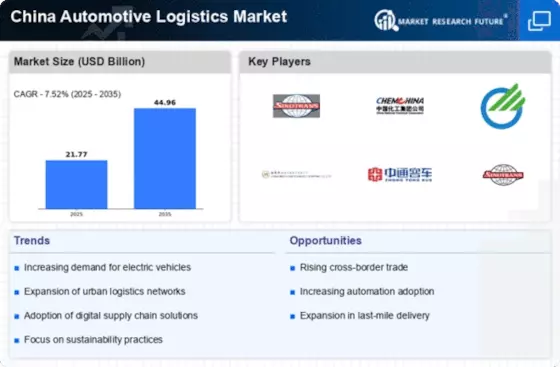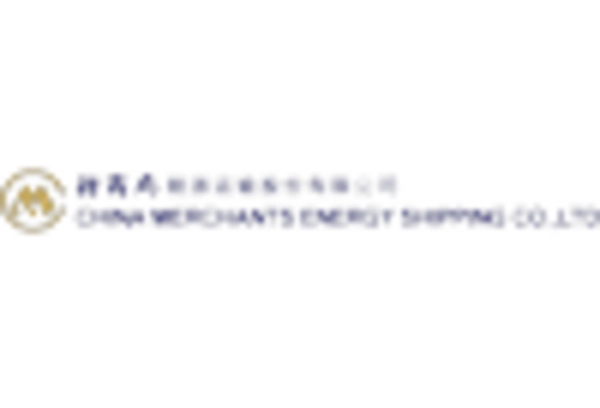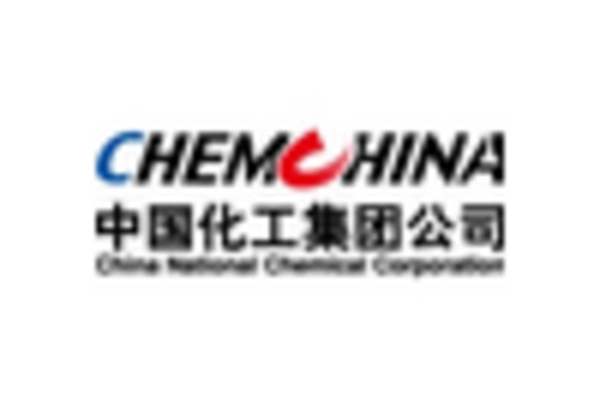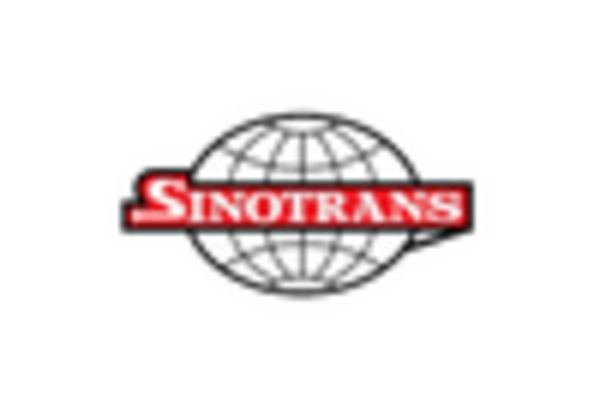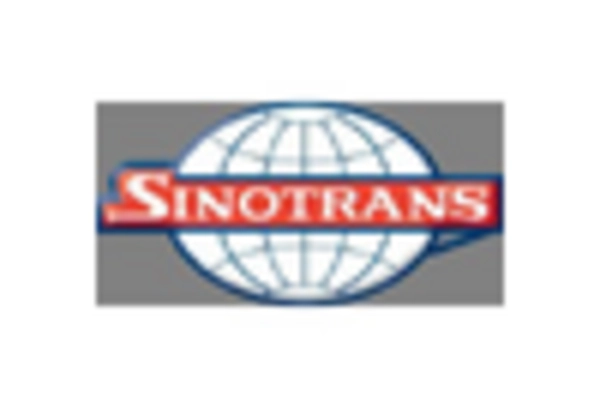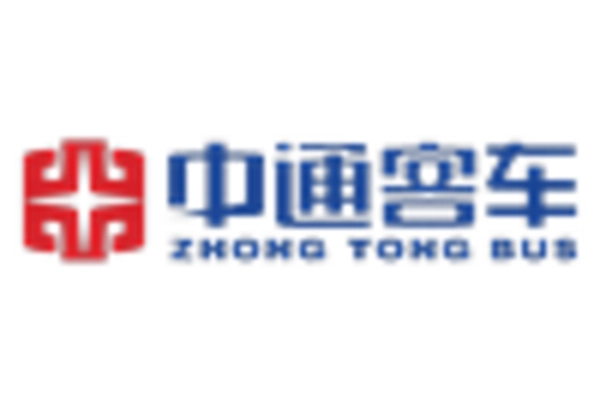Rise of Electric Vehicles
The increasing adoption of electric vehicles (EVs) in China is significantly influencing the China Automotive Logistics Market. As the country aims to become a global leader in EV production, logistics providers are adapting their services to accommodate the unique requirements of electric vehicle supply chains. In 2025, the production of electric vehicles in China is projected to exceed 10 million units, necessitating specialized logistics solutions for battery transportation and vehicle distribution. This shift presents both challenges and opportunities for logistics companies, as they must develop expertise in handling EV components and ensure compliance with safety regulations. Consequently, the rise of electric vehicles is reshaping the logistics landscape, driving innovation and efficiency within the China Automotive Logistics Market.
Technological Advancements
Technological advancements are transforming the China Automotive Logistics Market, enabling companies to enhance operational efficiency and reduce costs. The integration of technologies such as IoT, blockchain, and automation is revolutionizing logistics processes. For instance, IoT devices facilitate real-time tracking of shipments, allowing logistics providers to optimize routes and improve delivery times. Furthermore, blockchain technology enhances transparency and security in supply chain transactions, which is particularly vital in the automotive sector. As logistics companies increasingly adopt these technologies, they are likely to gain a competitive edge in the rapidly evolving China Automotive Logistics Market. The ongoing digital transformation is expected to streamline operations and foster innovation, ultimately benefiting consumers and businesses alike.
Growing Demand for E-commerce
The rapid expansion of e-commerce in China is a pivotal driver for the China Automotive Logistics Market. As online shopping continues to gain traction, the demand for efficient logistics solutions has surged. In 2025, e-commerce sales in China reached approximately 2 trillion USD, indicating a robust market that necessitates advanced logistics capabilities. Automotive logistics providers are increasingly adapting their services to meet the needs of e-commerce, including last-mile delivery and inventory management. This shift not only enhances customer satisfaction but also drives operational efficiencies within the China Automotive Logistics Market. The integration of technology, such as AI and big data analytics, further streamlines logistics processes, ensuring timely deliveries and optimized supply chains.
Government Policies and Regulations
Government policies play a crucial role in shaping the China Automotive Logistics Market. The Chinese government has implemented various regulations aimed at improving logistics efficiency and reducing costs. For instance, the 'Made in China 2025' initiative emphasizes the importance of modernizing the logistics sector to support the automotive industry. Additionally, policies promoting the development of logistics infrastructure, such as highways and rail networks, are expected to enhance connectivity and reduce transit times. These regulatory frameworks not only facilitate smoother operations for logistics providers but also encourage investments in technology and innovation, thereby bolstering the overall competitiveness of the China Automotive Logistics Market.
Increased Investment in Infrastructure
Investment in logistics infrastructure is a key driver of growth in the China Automotive Logistics Market. The Chinese government and private sector are channeling substantial resources into enhancing transportation networks, including roads, railways, and ports. In 2025, infrastructure investment is projected to reach over 1 trillion USD, aimed at improving logistics efficiency and reducing bottlenecks. This investment not only facilitates smoother transportation of automotive goods but also supports the overall growth of the automotive sector. Enhanced infrastructure enables logistics providers to optimize their operations, reduce transit times, and lower costs, thereby strengthening their position in the competitive China Automotive Logistics Market. As infrastructure continues to improve, it is likely to attract further investments and innovations in logistics services.


